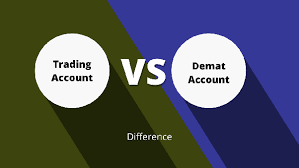Every system has some key components without which it cannot function. In the context of investing in the stock market, some such key elements are a demat account and a trading account.
You must have a functional demat and trading account in order to buy and sell securities in the capital market and safely store them in an electronic format.
In this article, we shall discuss the meaning of both types of accounts as well as the key differences between a demat and trading account.
What is a Demat Account?
A demat account is an electronic vault where the securities purchased by you in the market are stored in a dematerialised or demat format. In many ways, a demat account is akin to a bank locker albeit without a physical structure.
You can open a demat account online with the National Securities Depository Limited or the Central Depository Services Limited via a registered Depository Participant or DP.
Some DPs offer free demat accounts to begin with, but it is important to peruse the schedule of charges before proceeding with account opening.
What is a Trading Account?
A trading account is a digital account through which buy and sell orders are placed in the market. You can access the latest market prices of various securities through trading account platforms, and place trade orders in line with your investment objectives.
It is easy to open a trading account online; you can select a credible stock broker and fill the online account opening form to initiate the process. Once your trading account has been opened, you can access it through the selected broker’s trading platform and start trading.
Demat and Trading Account Differences
A demat and trading account function in close conjunction in the stock trading process. While your orders with a stock exchange are placed through a trading account, the securities thus purchased are stored in a demat account (after the settlement of the order).
There are, however, some key difference between demat and trading account, and the following table sheds light on those.
To Sum it Up
Both trading and demat accounts are integral elements of the securities trading process. Another key component of the system is a bank account. All three accounts work in close conjunction to make the process of trading seamless.

